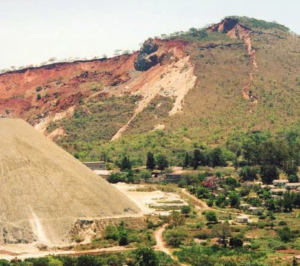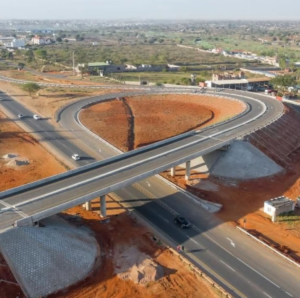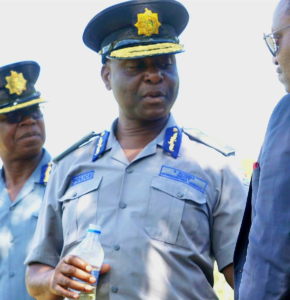MNANGAGWA EXTENDS SIBANDA’S TENURE TO SECURE POWER

President Emmerson Mnangagwa has extended the term of General Philip Valerio Sibanda, the Commander of the Zimbabwe Defence Forces, by another year. This move seems to be aimed at strengthening his position and ensuring stability within the state security forces. It also helps him guard against any potential threats from his main political rival, Vice-President Constantino Chiwenga.
The announcement was made through an official notice from Martin Rushwaya, the Chief Secretary to the President and Cabinet. The notice stated:
“General Notice 15 of 2025.
DEFENCE ACT [CHAPTER 11:02]
Extension of Term of the Commander of the Zimbabwe Defence Forces.
IT is hereby notified that His Excellency the President has, in terms of proviso (i) to the Defence (Regular Force) (Officers) Regulations 1988, published in Statutory Instrument 152 of 1988, extended the appointment of General Philip Valerio Sibanda as Commander of the Zimbabwe Defence Forces with effect from the 24th December 2024 to the 23rd November 2025.
M. RUSHWAYA, Chief Secretary to the President and Cabinet.”
General Sibanda has been a key ally of President Mnangagwa since 2017 when the president rose to power through a military coup. Without Sibanda’s support, Mnangagwa’s position would have been more vulnerable to political attacks or even another coup. One such close call occurred in January 2019, when Mnangagwa faced a threat of removal while visiting Russia and other Eastern European nations. Sibanda’s leadership played a major role in keeping him in power during that time.
By extending Sibanda’s tenure, Mnangagwa has ensured that a trusted ally remains at the helm of the military for another year. This decision seems to be part of a larger plan to secure his political future. Mnangagwa is currently in a fierce power struggle with Chiwenga, who is backed by a military-aligned faction within the ruling Zanu PF party.
The rivalry between Mnangagwa and Chiwenga has been growing over the years. Both leaders are vying for control within Zanu PF, and this has created tensions in the party. Mnangagwa’s latest move to keep Sibanda in the military could be seen as a way to neutralize Chiwenga’s influence and prevent any attempts to challenge his leadership.
Mnangagwa’s goal seems to be clear. He wants to remain in power until at least 2030, even though his second term as president is constitutionally set to end in 2028. Extending Sibanda’s term ensures that he has a strong and loyal figure in the military, which reduces the risk of political instability or a coup against him.
For Mnangagwa, stability within the security forces is crucial. A divided military could lead to internal conflict, weakening his grip on power. By keeping Sibanda in charge, Mnangagwa has maintained control over the military, which is a critical part of his regime’s foundation.
At the same time, this decision sends a strong message to Chiwenga and his supporters. It shows that Mnangagwa is not willing to back down in the power struggle within Zanu PF. Instead, he is taking steps to secure his position and push forward his agenda.
However, extending Sibanda’s term might not end the rivalry between Mnangagwa and Chiwenga. The political landscape in Zimbabwe remains tense, and the power struggle within Zanu PF is likely to continue. Mnangagwa’s bid to stay in power beyond 2028 could face resistance not only from his rivals within the party but also from other factions and stakeholders in the country.
For now, though, Mnangagwa has made his move. By extending Sibanda’s term, he has strengthened his position and reduced the immediate threat to his regime. Whether this decision will lead to long-term stability or fuel further tensions remains to be seen. But one thing is clear: Mnangagwa is focused on securing his future, no matter the cost.



